What’s out there? – UniPress in space
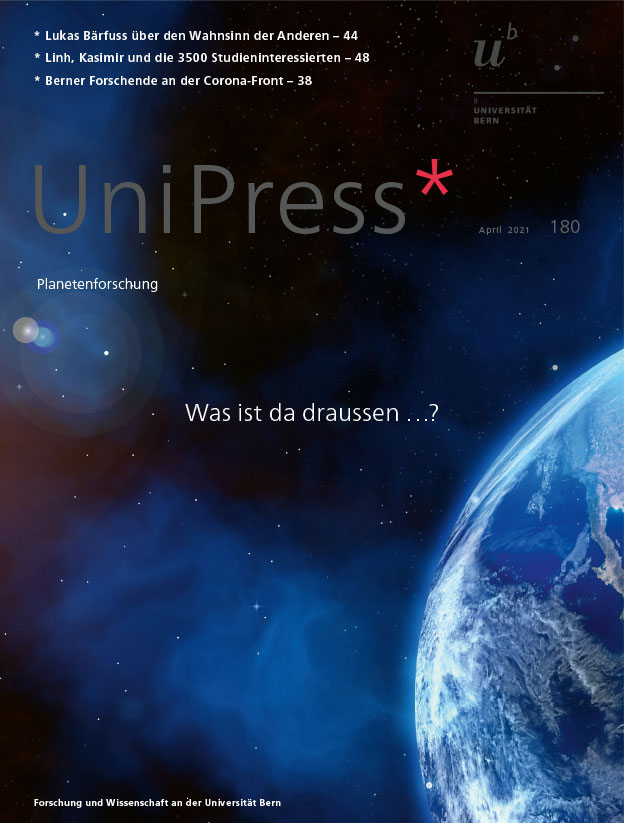
More than 4000 planets have already been discovered since Michel Major and Didier Queloz tracked down the first exoplanet orbiting a sun-like star in 1995 – triggering a revolution in astronomy. With the National Center of Competence in Research NCCR PlanetS, Switzerland is at the forefront of this adventure, as the current issue of the science magazine UniPress shows.
By Brigit Bucher and Timm Eugster
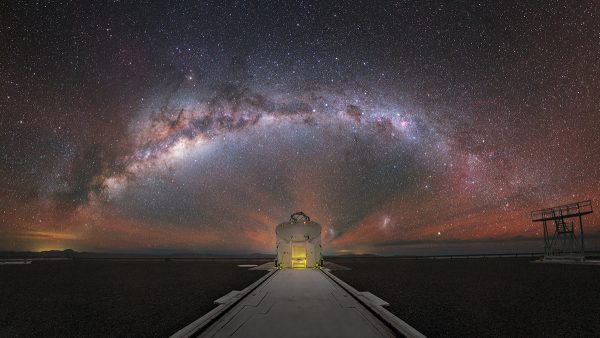
This image shows the Milky Way extending behind one of the auxiliary telescopes of ESO’s Very Large Telescope (VLT). The NCCR PlanetS is also involved in the instrumentation of the VLT. The VLT has ushered in a new era of discoveries with several notable scientific firsts, including the first image of an extrasolar planet. © Y. Beletsky/ESO
Where do we come from? How did the universe come into being? Is there life on other planets in our solar system or beyond? How did the planets form, how did they evolve? Looking up at the starry sky at night, these are questions that many people ask themselves. Finding answers to them has to do with the drive for knowledge and humankind’s curiosity to better understand the world in which it lives.
Cutting-edge research in collaboration
When Michel Major and Didier Queloz from the University of Geneva discovered the first exoplanet orbiting a sun-like star in 1995, they triggered a revolution in astronomy. Since then, such great progress has been made that the era of discoveries is now being replaced by an era of determining physical and chemical properties.
Thus, since 2014, the National Centre of Competence in Research (NCCR) PlanetS has been dedicated to researching the origin and evolution of planets and their characterisation in interdisciplinary projects. The NCCR PlanetS consists of the Universities of Bern and the Geneva, which jointly lead the project, as well as ETH Zurich and the University of Zurich.
In search of evidence of life
“You have to be patient and persistent,” says Willy Benz, Director of the National Centre of Competence in Research NCCR PlanetS in an interview with UniPress: “Ultimately, we want to know if there is evidence of life on these planets – but unfortunately we can’t go and look.” So science “still has a lot to learn before we can say: There’s someone sitting there smoking a cigar,” Benz said.
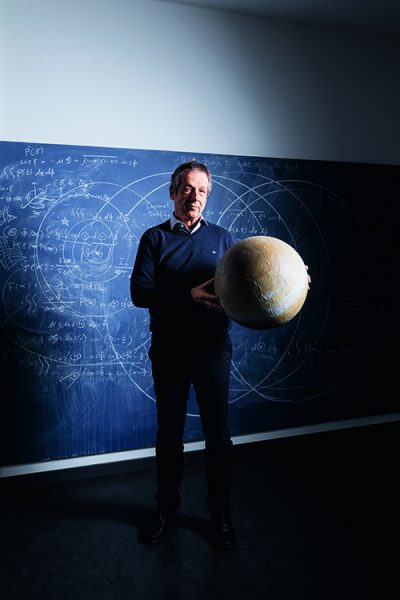
Willy Benz is Professor of Physics and Astrophysics at the University of Bern and Director of the National Centre of Competence in Research PlanetS. © University of Bern, Image: Ramon Lehmann
But the possibilities and advances are already impressive today. UniPress magazine shows how astronomical observations with telescopes on the ground and in space and instruments on board space probes are being used to gain new insights into planets in our solar system and beyond.
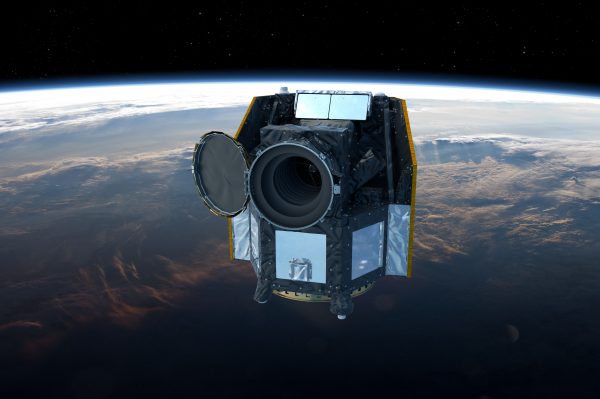
Artist’s impression of the CHEOPS space telescope, which was developed and built at the University of Bern. © ESA / ATG Medialab
One learns how astronomical observations are theoretically interpreted with models and simulations on the computer and thus insights are gained into the diverse chemical and physical processes that take place in the formation and development of planets.
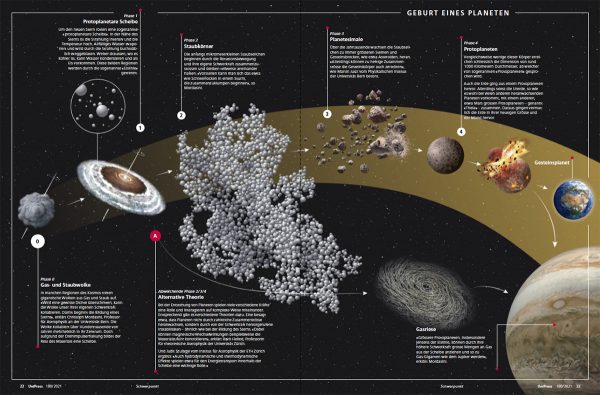
A look at the current UniPress: How a planet is made © University of Bern
And researchers were visited in the laboratory, who are using analyses of rock samples from asteroids, comets and meteorites to learn more about our own and other star systems and to find clues to the origin of life on Earth.
Space nation Switzerland
Within the framework of the NCCR PlanetS, excellent researchers work on projects across disciplines and institutions, young talents are trained and promoted – for the job market or a career in science. And last but not least, there is intensive cooperation with industry with regular technology transfer and start-ups being founded.
Some may be astonished: Switzerland is indeed a space nation, and the NCCR PlanetS makes a significant contribution to this: By joining forces and creating synergies in our small country, we are competitive – globally and in space.
To the current issue of UniPress.
We will gladly send UniPress to your home free of charge two to three times a year:

